Daily Vocabulary Words: List of Daily Used Words in Leading International Newspapers
Hi there. Welcome to this special section @ Wordpandit.
Our endeavour here is very simple: to highlight important daily vocabulary words, which you would come across in leading newspapers in the country. We have included the following newspapers in our selection:
• The New York Times
• The Washington Post
• Scientific American
• BBC
• The Guardian
• Psychology Today
• Wall Street Journal
• The Economist
We are putting in extensive work to develop your vocabulary. All you have got to do is be regular with this section and check out this post on a daily basis. This is your repository of words that are commonly used and essentially, we are posting a list of daily used words. Hence, this has significant practical application as it teaches you words that are commonly used in leading publications mentioned above.
Visit the website daily to learn words from leading international newspapers.
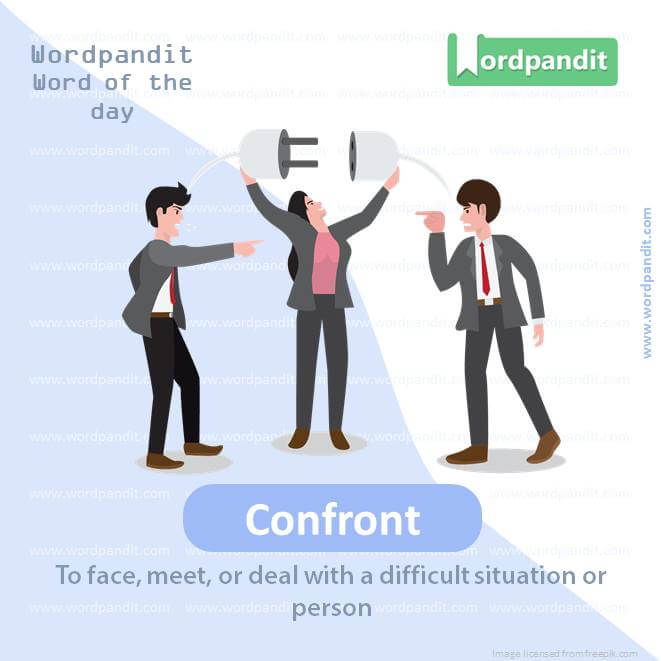
Word-1: Confront
Meaning: To face, meet, or deal with a difficult situation or person.
Synonyms: defy, oppose, resist, challenge, brave, withstand, face, tackle, brazen, outface, dare, attack, breast, accost, meet, outbrave, etc.
Usage Examples:
1. Trends in the national economy confront firms with pressures they cannot easily resist.
2. It’s an issue we’ll have to confront at some point, no matter how unpleasant.
3. We are learning to confront death instead of avoiding its reality.
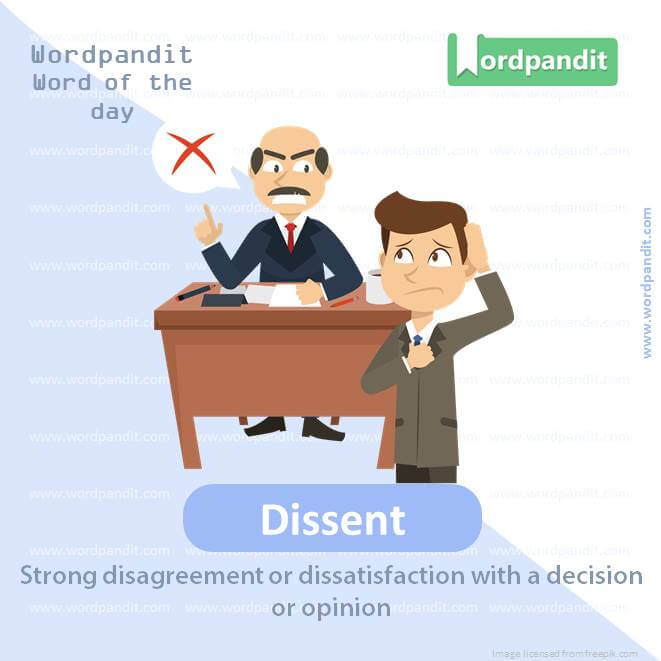
Word-2: Dissent
Meaning: Strong disagreement or dissatisfaction with a decision or opinion.
Synonyms: Disagreement, opposition, conflict, objection, protest, strife, defiance, disaccord, discord, discordance, dissension, friction, etc.
Usage Examples:
1. Stability only exists in the country because dissent has been suppressed.
2. The regime tried to silence dissent with a programme of mass murder.
3. Anyone wishing to dissent from the motion should raise their hand.
Word-3: Coherent
Meaning: Logical and well-organized, easy to understand
Synonyms: Understandable, intelligible, comprehensible, fathomable, graspable, apprehensible, comprehendible, accessible, legible, clear, etc.
Usage Examples:
1. He sounded coherent but was too ill to know what he was saying.
2. Without coherent policies to persuade the electorate, the Republicans have resorted to sloganeering and empty rhetoric.
3. She only became coherent again two hours after the attack.
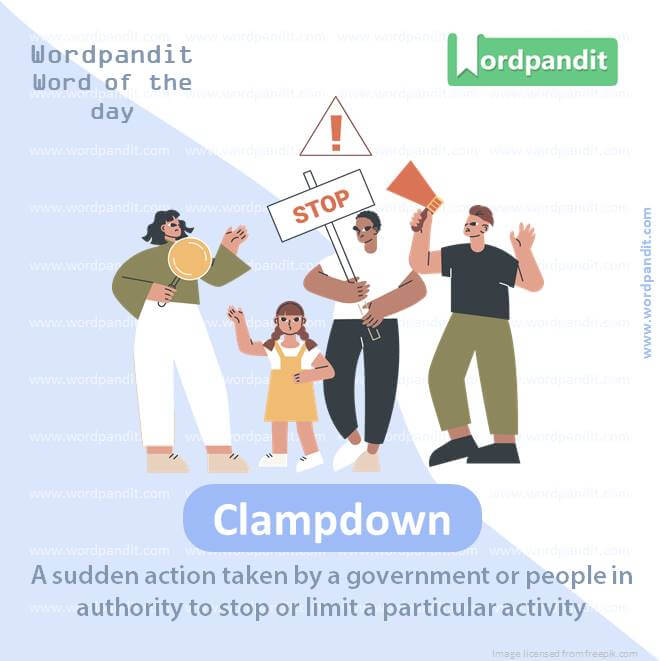
Word-4: Clampdown
Meaning: A sudden action taken by a government or people in authority to stop or limit a particular activity.
Synonyms: Crackdown, curb, prevention, restriction, stopping, suppression, check, embargo, limitation, repression, restraint, shutdown, etc.
Usage Examples:
1. A tight clampdown on media coverage makes it difficult to gauge whether the clashes are the start of a more significant revolt or just a fleeting show of dissent.
2. Property counters were selling on possible clampdown on deferred payment schemes for property purchases.
3. China’s clampdown on the free flow of information has often smacked of protectionism.
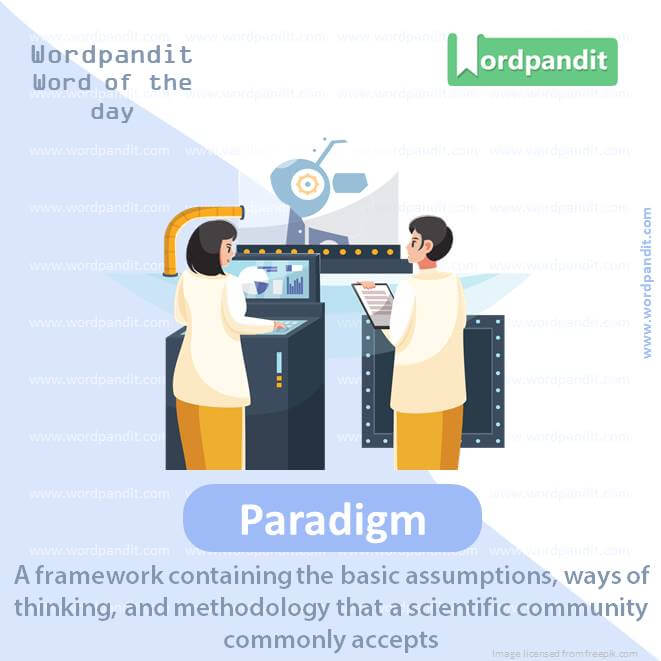
Word-5: Paradigm
Meaning: A framework containing the basic assumptions, ways of thinking, and methodology that a scientific community commonly accepts.
Synonyms: Model, pattern, archetype, ideal, exemplar, norm, paragon, prototype, standard, template, epitome, example, criterion, etc.
Usage Examples:
1. The war was a paradigm of the destructive side of human nature.
2. She seemed to be society’s paradigm of the ‘ideal woman’.
3. They saw in it a narrative paradigm which offered the possibility of meaning in their individual experience to all men.
Word-6: Schadenfreude
Meaning: The experience of pleasure, joy, or self-satisfaction that comes from learning of or witnessing the troubles and failures.
Synonyms: Sadism, brutality, cruelty, savagery, inhumanity, viciousness, barbarity, heartlessness, atrocity, fiendishness, barbarousness, etc.
Usage Examples:
1. I guess “America’s Funniest Moments of Schadenfreude” didn’t have the same ring.
2. As the suffering increased, a certain inevitable Schadenfreude set in.
3. The U.S. State Department has no comment, but officials privately confess to a certain “schadenfreude” at Chinese difficulties.
Word-7: Dismal
Meaning: Showing or causing unhappiness or sad feelings, not warm, cheerful, etc.
Synonyms: Depressing, discouraging, disheartening, dull, ghastly, horrible, horrid, etc.
Usage Examples:
1. The house was filled with the cello’s dismal squeaks and groans.
2. The main part of the hospital is pretty dismal, but the children’s ward is lively.
3. The report paints a dismal picture of the government’s economic record.
Word-8: Meddling
Meaning: The act of trying to change or influence things that are not your responsibility, especially by criticizing in a damaging or annoying way.
Synonyms: Interference, interrupting, meddlesomeness, nosiness, prying, snooping.
Usage Examples:
1. She’d heard that gender meddling had been outlawed because of the high suicide rate among the successfully mutated.
2. He was sly, intelligent, meddling, fresh, charming and vigorous.
3. Pippin I’s recurrent problem had been the meddling of his father, ex-king of Aquitaine.
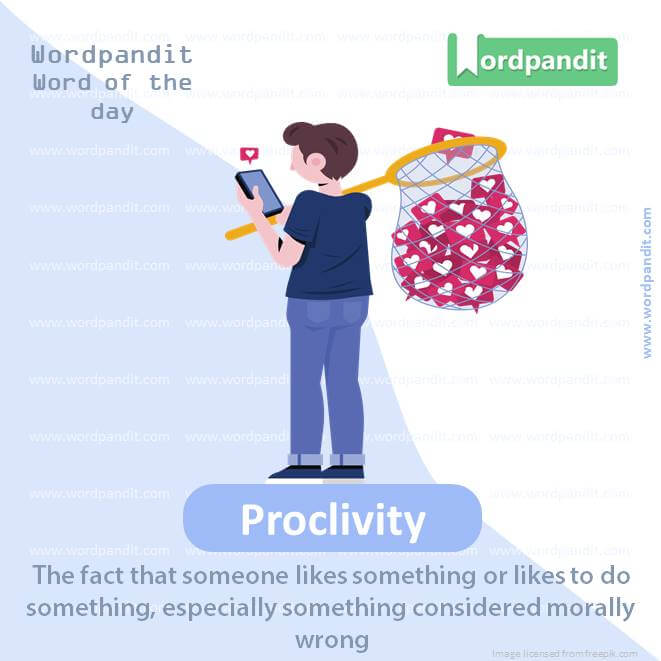
Word-9: Proclivity
Meaning: The fact that someone likes something or likes to do something, especially something considered morally wrong.
Synonyms: Penchant, predilection, predisposition, propensity, bent, bias, disposition, druthers, facility, etc.
Usage Examples:
1. Companies have a proclivity to increase their prices when their products are in high demand.
2. Tina has a proclivity to spend more money than she saves
3. These organizations would most likely be displeased at graphics that indicate a proclivity for drug and alcohol use.











